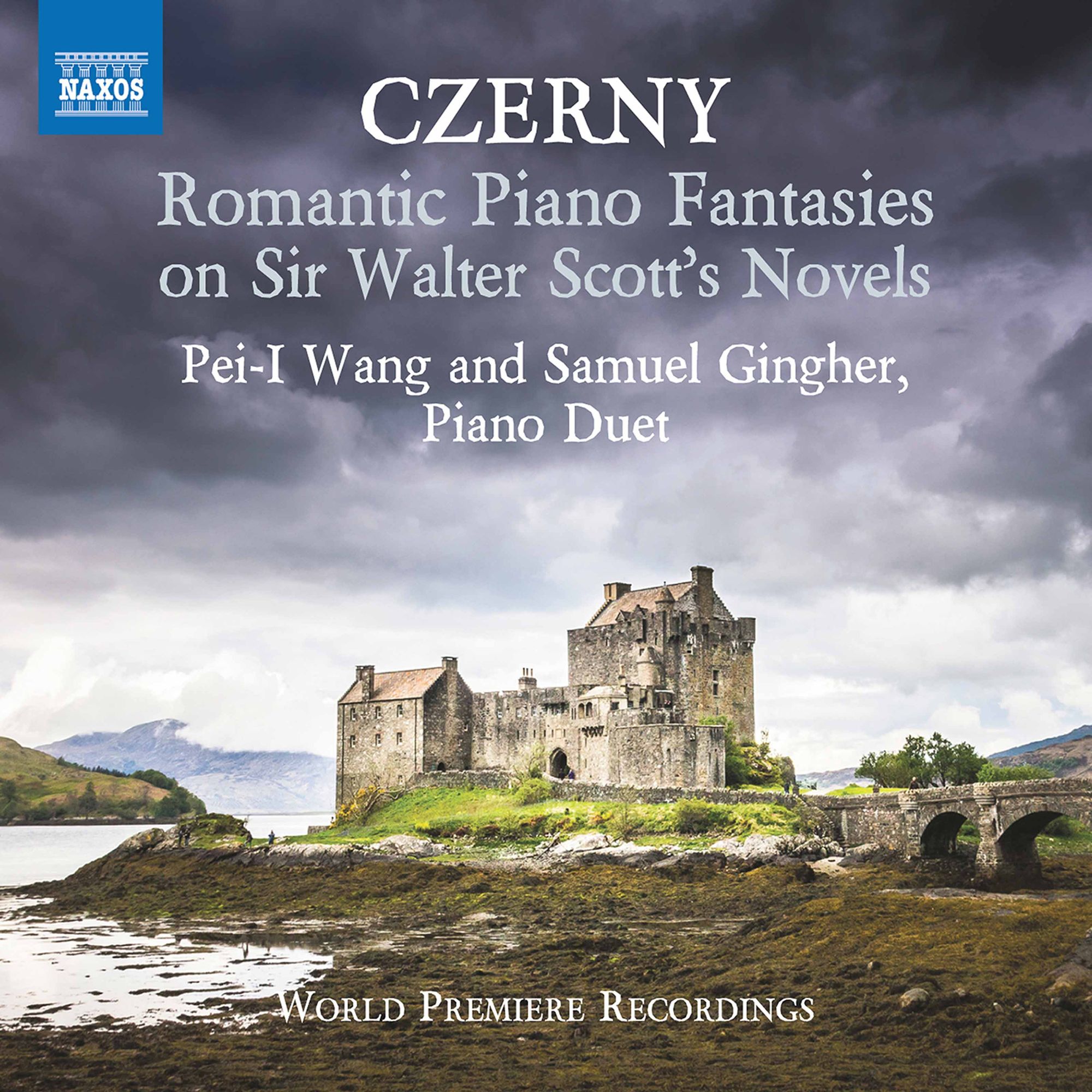Romantic Fantasies on Sir Walter Scott's Novels (Czerny)
That Wang and Gingher are so convincing is testament to their devotion to this wonderful music

What do you think of when you think of Czerny? If you've ever been an amateur pianist, it's probably exercises. Dull, dull exercises. But he was a compsoer there,t oo, and there has been good work done in recent decades to revivify him (I'm thinking particularly of an excellent disc bypianist Melvyn Tan called Master & Pupil on the Onyx label that cenebrates the link between Beethoven and Czerny and includes CZerny's funeral march for Beethoven: see purchase link below).
The four Romantic Fantasies e hear on this disc, for piano duet, are named after Sir Walter Scott’s famous Waverley novels and are of epic breadth. Taking popular Scottish melodies as his basis, Czerny creates four expansve canvases of some 20 minutes each based on (respectively) the novels Waverley, Guy Mannering, Ivanhoe and Rob Roy. In them, Czerny ingeniously develops popular Scottish melodies, including the use of the ‘Scotch snap’, to generate a vivid programmatic quality that explores numerous genres. It is remarkable to think that all four pieces are recorded here for the very first time.
There is an element here that raises this disc from the "norm": that Samuel Gingher, one of the piano duo here, has been intensely involved in research into historical piano improvisation pedagogy, with a focus on Czerny's contribution. So there's a real sense of authority about these performances, and understanding, too.
Wthat is really improessive is that although these pieces are of orchestral ambition, they sound so perfectly for piano duet Here's the first, with a massive emotional remit, that on Waverley:
This is a simply fabulous performance, sparkling where required and [positively dark at other times (just look at those clouds on teh disc cover; they are perfectly depicted here). The music quotes Bluebells of Scotland at various points.
The four Romantic Fantasies have consecutive opus numbers (Opp. 240-243) and ere probably written in 1832. Interesting to read Czerny's own comments on the Fantasy form:
If a well-written composition can be compared with a noble architectural edifice in which symmetry must predominate, then a fantasy well done is akin to a beautiful English garden, seemingly irregular, but full of surprising variety, and executed rationally, meaningfully, and according to plan.
This is perfectly borne out in all four pieces here. Each is delectable in its own right and, as each focuses on a different novel, each has its own aura, just as each of Scott's novels had. That for Guy Mannering seems lighter, with a lovely gentle rocking figure around the 12-minute mark, charmingly played here by Wang and Gingher:
We move to twelfth centruy England for Scott's famous novel Ivanhoe and the third Romantic Fantasy, complete with a theme designated as for Richard the Lionheart. There are more pronounced, beautiful, achingly lyrical sections in this piece that are most moving,particularly in this heartfelt performance:
The fourth piece is on another of Scott's most famous novels, Rob Roy and here it really is ompossible to miss the chaacteristic Lombard ("Scotch snap") rhythms so characteristic of the region (there's a touch of melodrama in this one, too, that Wang and Gingher laudably do nothing to hide!):
Very recently released (October 29), this is a remarkable disc: the Romantic Fantasies of Czerny sit somewhere between his "brilliant" and his "serious" compositions. Glitter aplenty, to be sure, but each is painted on a large canvas that demands organisation and a certain tautness of thought. That Wang and Gingher are so convincing is testament to their devotion to this wonderful music.
